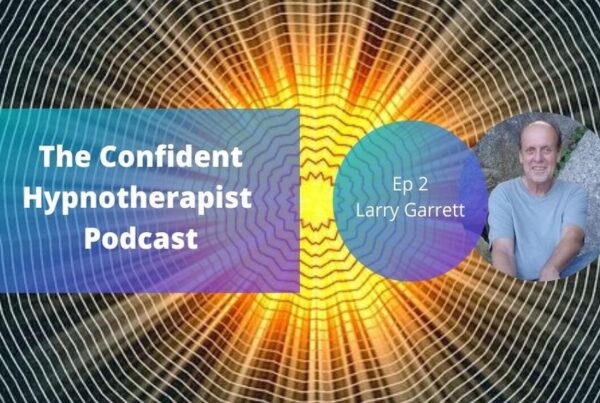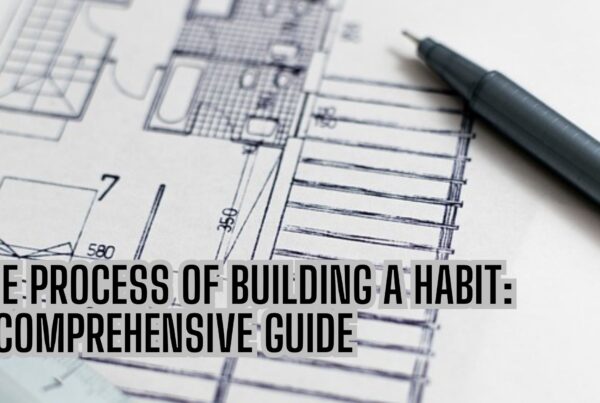Embracing the Present: Practicing Radical Acceptance for Enhanced Mental Health
Throughout our lives, we will encounter situations that are beyond our control, stirring a myriad of emotions and thoughts within us. In those moments, practicing radical acceptance can prove to be truly useful. Radical acceptance isn’t about approving or dismissing these situations but about fully acknowledging them, thereby reducing their power over our mental state. In this article, we delve into the essence of radical acceptance and how it can be a beacon of light in navigating through the tumultuous waves of our mental and emotional seas.
Practicing Radical Acceptance
Navigating through life’s challenges often requires a subtle blend of acceptance and action, especially when it comes to our mental health. Radical acceptance, a concept rooted in dialectical behavior therapy (or DBT), invites us to fully embrace our present reality, not as a form of resignation, but as a proactive step towards minimizing the emotional and psychological turbulence that often arises from resistance. Let’s explore how integrating this practice into our daily lives can pave the way for enhanced mental and emotional well-being.
Section 1: Recognizing Resistance
The journey towards radical acceptance begins with an honest reflection on our internal battles, identifying the moments when we are resisting the reality that unfolds before us. Resistance often masquerades as bitterness, resentment, or a persistent wish that circumstances were different, subtly eroding our mental peace and stability. By becoming aware of these subtle, yet powerful, emotional undercurrents, we pave the way towards a more accepting and peaceful mental state.
Moreover, it’s imperative to understand that resistance is not merely a cognitive process but is deeply intertwined with our emotional and physical being. Our bodies, often, mirror our mental state, becoming tense and rigid in the face of resistance. Thus, recognizing resistance is not merely an intellectual endeavor but involves a holistic understanding of its manifestation within our thoughts, emotions, and physicality.
Section 2: The Power of Acceptance
Acceptance is not synonymous with approval or resignation but is a conscious choice to stop fighting against the unchangeable aspects of our reality. It’s about acknowledging the immutable facts of a situation and choosing to channel our energy towards areas where we can enact change. This shift, while seemingly subtle, can have a profound impact on our mental health, providing us with a sense of empowerment even in the face of adversity.
In the realm of mental health, embracing our emotions is a pivotal aspect of practicing acceptance. It’s about allowing ourselves to feel without judgment, to navigate through our emotional landscape with a sense of compassion and understanding. This emotional acceptance not only validates our experiences but also facilitates a healthy processing of emotions, preventing them from becoming lingering shadows in our mental and emotional space.
Section 3: Implementing Radical Acceptance
Sometimes, the path towards genuine acceptance is paved with moments of ‘pretend acceptance’. It’s about asking ourselves, “What would it look like if I accepted this situation?” and allowing our actions to reflect that hypothetical acceptance. This ‘acting as if’ strategy does not negate our true feelings but can sometimes serve as a bridge, guiding us towards genuine acceptance and reducing the emotional intensity of challenging situations.
Moreover, the physicality of acceptance cannot be overlooked. Our bodies are not mere vessels but are intrinsically linked to our mental and emotional states. Engaging in practices that promote physical relaxation, such as yoga, deep breathing, or a warm bath, can facilitate mental acceptance. It’s a gentle reminder that acceptance is not a solely cognitive process but is a harmonious alignment of our mind, body, and emotions.
Section 4: Coping Strategies and Continuous Practice
Coping statements serve as gentle reminders, guiding our thoughts towards a more accepting and positive direction. Phrases like “It is what it is” or “I can only control my own actions and reactions” act as anchors, providing stability in moments of emotional upheaval. These statements, while simple, can be profoundly impactful in redirecting our mental energy towards acceptance and peace.
Mindfulness Practical in Cultivating Radical Acceptance
Practicing Radical Acceptance is often intertwined with engaging in practical exercises that facilitate a deeper, experiential understanding of the concept. Mindfulness meditation, for instance, can be a powerful tool, guiding individuals to stay present and fully embrace each moment without resistance. Engaging in daily mindfulness practices, where one consciously observes their thoughts and emotions without judgment, can gradually cultivate a mindset of acceptance and reduce mental turmoil.
Moreover, journaling exercises that encourage individuals to reflect on situations where they find resistance and explore what acceptance might look like in those scenarios can be immensely beneficial. Writing not only provides a safe space to explore one’s internal world but also serves as a tangible reflection of one’s journey towards radical acceptance, marking milestones, challenges, and insights that emerge along the way.
Addressing Common Misconceptions
When it comes to Acceptance, it’s crucial to work through the many misconceptions that often cloud its true essence. A common misconception is equating radical acceptance with passive resignation or approval of adverse situations, which is far from the truth. Radical acceptance is about acknowledging reality as it is, without necessarily agreeing with it, thereby reducing the emotional and psychological strain that comes from resistance.
Another prevalent misconception is the belief that radical acceptance implies inaction. In reality, accepting a situation does not negate the possibility of taking action towards change. It simply means recognizing and accepting the present moment as it is, and from that place of acceptance, deciding on the most adaptive and constructive way forward, which might involve active change or adaptation.
Addition Resources to Help Practice Radical Acceptance
Books like “Radical Acceptance” by Tara Brach or “The Power of Now” by Eckhart Tolle provide profound insights into embracing the present moment and accepting it without judgment. Furthermore, online platforms offer numerous workshops, webinars, and courses that can guide individuals through practical applications of radical acceptance, enhancing their mental and emotional well-being.
Exploring various resources not only broadens one’s understanding but also provides diverse tools and strategies that can be personalized to one’s mental health journey. Engaging with different mediums – be it books, podcasts, or online courses – ensures that the concept of radical acceptance is explored from various angles, providing a holistic and comprehensive understanding that is pivotal for effectively integrating it into one’s life.
Practicing Radical Acceptance
Radical acceptance is not a destination but a continuous journey, requiring consistent practice and gentle self-compassion. It’s about recognizing that mastery comes with time and that each step towards acceptance, no matter how small, is a victory in itself. By practicing acceptance in smaller, more manageable situations, we gradually build our resilience and capability to employ this powerful tool even in the face of life’s most challenging storms.
Release Hypnosis Melbourne Hypnotherapy
Since 2016, Lawrence Akers has been working under the name Release Hypnosis offering Hypnotherapy and ACT based work to the people of Melbourne or an online service. Based on St Kilda Rd, Release Hypnosis is an easy and convenient location to get to and accessible by the ANZAC station train and tram stop. Release Hypnosis can help with a wide range of presenting issues, and I offer a free 30 minute no obligation discovery call for those who are unsure if hypnotherapy is the right way forward for them.
Book Your FREE 30 Minute Consultation With Release Hypnosis NOW!
You may also like to read:
Discovering Purpose and Values: A Path to Mental Well-being
Can’t Visualise in Hypnosis? Here’s What You Can Do Instead.
Dealing with Financial Stress and Crisis: Finding Peace Amid Turbulence
What Is The Success Rate of Hypnosis?
Release Hypnosis Melbourne Hypnotherapy is accessible for people in: Abbotsford, Armadale, Albert Park, Balwyn, Bentleigh, Black Rock, Box Hill, Brighton, Brunswick, Bulleen, Bundoora, Camberwell, Canterbury, Carnegie, Caulfield, Chadstone, Cheltenham, Clayton, Coburg, Collingwood, Deer Park, Doncaster, Elsternwick, Eltham, Elwood, Epping, Essendon, Fairfield, Fitzroy, Footscray, Glen Iris, Glen Waverley, Glenhuntly, Greensborough, Hampton, Hawthorn, Heidelberg, Highet, Ivanhoe, Kew, Kooyong, Lalor, Laverton, Lower, Plenty, Macleod, Malvern, Middle Park, Moonee Ponds, Melbourne, Moorabbin, Mount Waverley, Murrumbeena, Northcote, Oakleigh, Ormond, Parkville, Pascoe Vale, Port Melbourne, Prahran, Preston, Richmond, Rosana, Sandringham, South Yarra, South Melbourne, Spotswood, St Albans, St Kilda, Surrey Hills, Templestowe, Thornbury, Toorak, Tullamarine, Williamstown, Yarraville, North Melbourne, Windsor, East Melbourne, Melbourne, Melbourne CBD, Melbourne 3004








